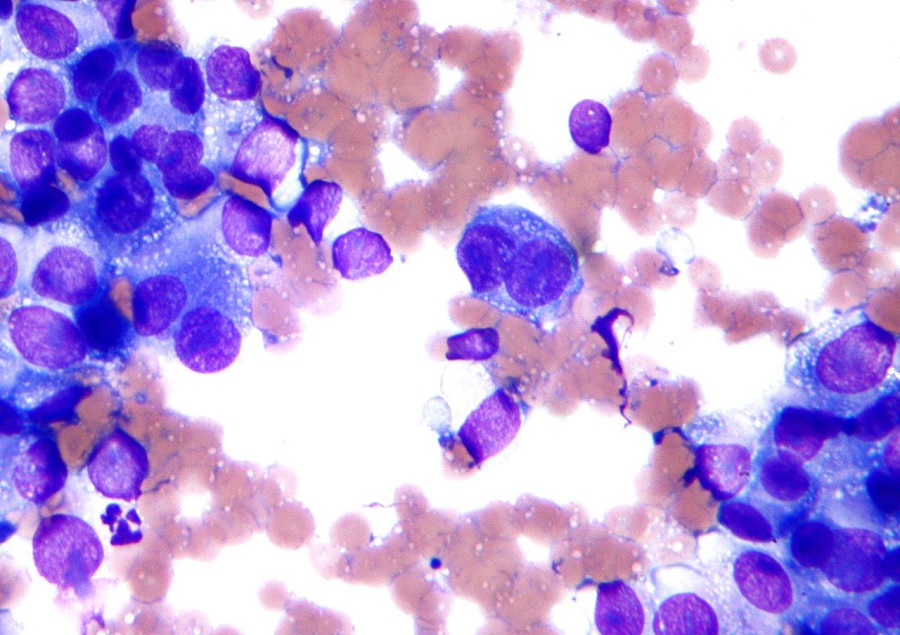The world is still waiting to see a complete cure for the various types of cancer. On the bright side, scientists have achieved major strides in developing much-improved treatment strategies to increase survival rates among patients diagnosed with advanced stages of cancer.
Combination treatment increases survival chances among advanced melanoma patients
Scientists from the London-based Institute of Cancer Research and The Royal Marsden Hospital experimented on combining ipilimumab and nivolumab. These are monoclonal antibodies that are being used in cancer patients to improve their chances of survival.
Separately, the ipilimumab and nivolumab have proven its effectivity. However, researchers proved that they offer greater results when administered together in a study published in the New England Journal of Medicine. For their experiment, scientists gathered 945 patients suffering from advanced melanoma and divided them into three groups where some 314 given the combined treatments, 315 took ipilimumab, and 316 were administered with nivolumab.
It was reported that 52 percent of the patients that took the combination treatment lived for five years and more. The same result was observed on 44 percent of the patients that only took nivolumab and 26 percent among those only given of ipilimumab.
Melanoma statistics: Why improved treatment is significant
The Guardian reports that the researchers that experimented on combining ipilimumab and nivolumab would not go as far as claiming it to be a cure. However, seeing that it offers advanced melanoma patients with increased chances of survival is still a significant success.
Melanoma is just one of the two main types of skin cancer. It is the 19th most common cancer that occurs on either men or women, according to the World Cancer Research Fund. The same organization reports that about 300,000 new cases of melanoma were reported last year.
Through developments in immunotherapies and other treatments, recent studies reportedly show that there was a huge improvement in the statistics of advanced melanoma patients who were able to live for five years or longer. With newer studies such as the one conducted by the Institute of Cancer Research and The Royal Marsden Hospital researchers, the number could even go higher in the coming years.



 Merck Raises Growth Outlook, Targets $70 Billion Revenue From New Drugs by Mid-2030s
Merck Raises Growth Outlook, Targets $70 Billion Revenue From New Drugs by Mid-2030s  Federal Appeals Court Blocks Trump-Era Hospital Drug Rebate Plan
Federal Appeals Court Blocks Trump-Era Hospital Drug Rebate Plan  Hims & Hers Halts Compounded Semaglutide Pill After FDA Warning
Hims & Hers Halts Compounded Semaglutide Pill After FDA Warning  Novo Nordisk and Eli Lilly Cut Obesity Drug Prices in China as Competition Intensifies
Novo Nordisk and Eli Lilly Cut Obesity Drug Prices in China as Competition Intensifies  Sanofi Gains China Approval for Myqorzo and Redemplo, Strengthening Rare Disease Portfolio
Sanofi Gains China Approval for Myqorzo and Redemplo, Strengthening Rare Disease Portfolio  Viking Therapeutics Sees Growing Strategic Interest in $150 Billion Weight-Loss Drug Market
Viking Therapeutics Sees Growing Strategic Interest in $150 Billion Weight-Loss Drug Market  Novo Nordisk and Eli Lilly Cut Obesity Drug Prices in China, Boosting Access to Wegovy and Mounjaro
Novo Nordisk and Eli Lilly Cut Obesity Drug Prices in China, Boosting Access to Wegovy and Mounjaro  Sanofi to Acquire Dynavax in $2.2 Billion Deal to Strengthen Vaccine Portfolio
Sanofi to Acquire Dynavax in $2.2 Billion Deal to Strengthen Vaccine Portfolio  AstraZeneca’s LATIFY Phase III Trial of Ceralasertib Misses Primary Endpoint in Lung Cancer Study
AstraZeneca’s LATIFY Phase III Trial of Ceralasertib Misses Primary Endpoint in Lung Cancer Study  China to Add Eli Lilly’s Mounjaro to National Health Insurance in 2025
China to Add Eli Lilly’s Mounjaro to National Health Insurance in 2025  U.S. Vaccine Policy Shifts Under RFK Jr. Create Uncertainty for Pharma and Investors
U.S. Vaccine Policy Shifts Under RFK Jr. Create Uncertainty for Pharma and Investors  California Jury Awards $40 Million in Johnson & Johnson Talc Cancer Lawsuit
California Jury Awards $40 Million in Johnson & Johnson Talc Cancer Lawsuit 































